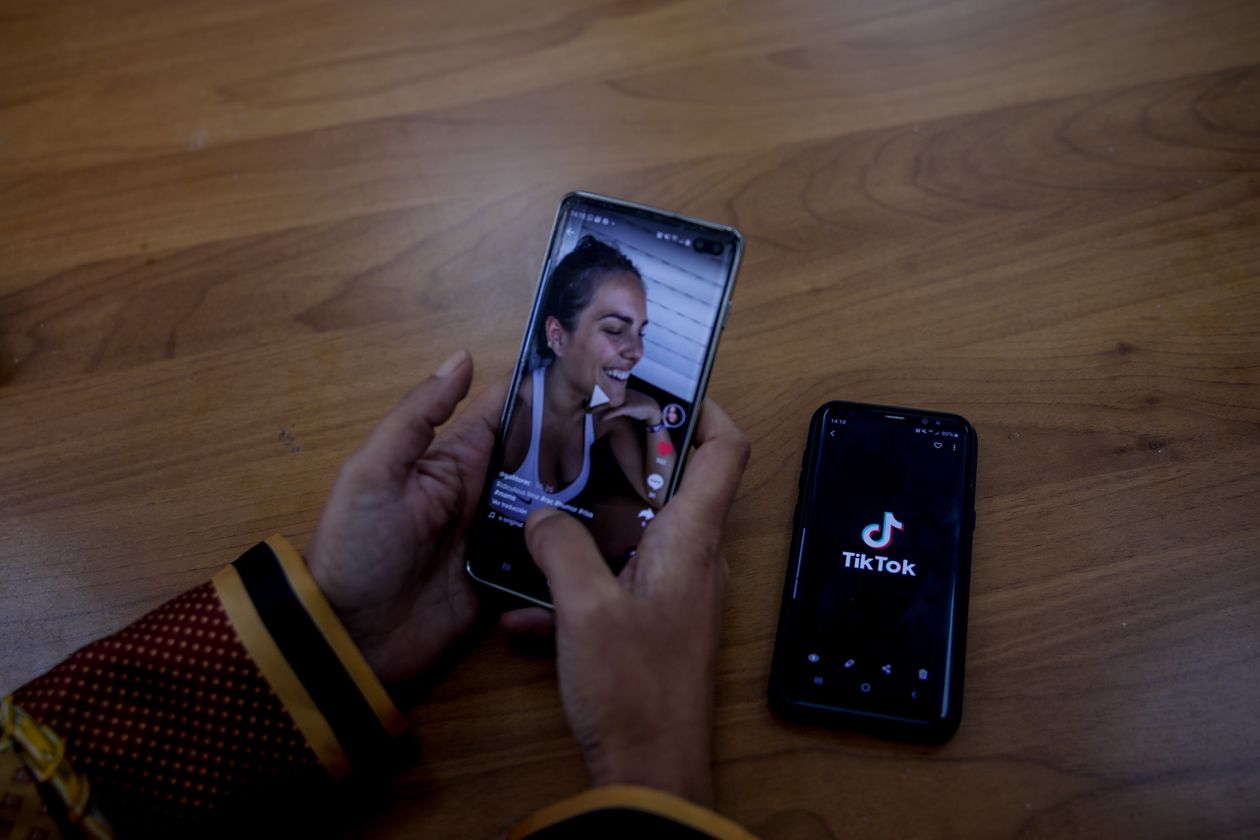

This weekend may be a pivotal one for TikTok and its partners, who are trying to avoid the looming U.S. ban on downloading the popular video sharing app and see through an agreement that meets the approval of the U.S. and Chinese governments.
A week after the tentative agreement was reached, it's still hard to foresee what happens next. TikTok and other participants continue to finalize the agreement under which they will collaborate with Oracle Corp. and Walmart Inc. to become a U.S.-based company with data secured by Oracle. TikTok is still operating in the U.S. courts to secure an emergency injunction that would block the Commerce Department 's ban on installing apps — which, if the business fails, would take effect on Sunday night. And TikTok's Beijing-based parent, ByteDance Ltd., is waiting for the Chinese regulators to give their approval to the deal on Thursday.
President Trump, who last Saturday said he had agreed in principle to the TikTok agreement with Oracle and Walmart, reiterated on Thursday that any final deal would have to meet the national security concerns of his administration.
They're working to see if they can make a deal, said Mr. Trump to reporters. "If they make a bargain, that's all right. And if they don't, that's all right, too.
Mr. Trump said that possible Chinese government access to TikTok 's U.S. user data could pose a national security danger, and that TikTok would either find an American buyer or face a ban. TikTok has confirmed that it does not provide user data to the Chinese authorities.
Under the tentative agreement that Mr. Trump blessed, Oracle and Walmart will take a joint 20 % stake in TikTok Global, a new U.S.-based business that would operate the global business. The outlines of the arrangement are still in flux, the people involved in the deal talks said, as the companies are trying to ensure that the final approval is received from the governments on both sides.
One point of uncertainty was the exact breakdown of ownership, with the TikTok side and Oracle having provided conflicting messages after the tentative agreement was announced. ByteDance spokesperson said that it would directly own 80 per cent of TikTok Global, while Oracle said publicly that Americans would be the largest shareholders, and ByteDance would not be the owner of TikTok Global.
One way these arguments could square, according to some people who are familiar with the talks, is to have ByteDance initially own its majority stake in TikTok when the deal is concluded, and then reduce it shortly afterwards. That may come from the redistribution of ByteDance's shareholdings to current shareholders, many of whom are U.S. investors, and from a funding round ahead of the U.S. initial public offering that deal participants said would come within a year.
But another person close to the situation denied that theory and said the Americans would be the majority owners as soon as the new company was established.
China's government is also weighing whether the agreement is in line with recent export restrictions. In August, China's trade, science and technology ministries added restrictions on exports of data-processing technologies, such as content-recommendation algorithms, widely perceived as aimed at TikTok.
Under the tentative agreement in the U.S., the TikTok algorithm is not going to change hands, but the Chinese media have criticized the outlines of the contract, and Beijing may still object, which would jeopardize the completion of the deal's projects.
The most urgent issue for TikTok, however, is the move away from the Trump administration's planned download ban, which is scheduled to come into force after 11:59 p.m. Eastern time on Sunday, which will bar new software downloads which updates in the U.S. TikTok asked the federal judge on Wednesday to stay the order, arguing that it violates the constitutional protections on freedom of speech and due process.
U.S. Judge Carl Nichols. District Court in Washington , D.C. plans to hold a hearing on Sunday for both sides to plead their case before deciding whether to temporarily block the ban at the request of TikTok.
Judge Nichols suggested that he considered TikTok 's compelling claim that a ban on downloading might damage the company.
TikTok lawyers have set out in court papers the harm they argue the ban did long before it came into effect.
They said that popular TikTok content creators and their fans had migrated to other sites because of confusion about the availability of TikTok, and that many top job applicants had declined job offers, citing the actions of the U.S. government.
Although current users would still have access to TikTok, a ban on downloads would lead to loss of TikTok's user base and long-term market share erosion, they said. Continuous growth is the lifeblood of a social media business like TikTok and is necessary to retain its competitive market position.
The Commerce Department is considering a full ban on Nov. 12 if the American TikTok agreement is not concluded by then. TikTok officials stressed that a full ban, even a temporary one, would be disastrous, estimating in court papers that a two-month blackout of the app would lead to the loss of 40 to 50 percent of active regular users in the U.S.
At a court hearing on Thursday, both parties refused to provide the judge with new details on the status or terms of the agreement.
